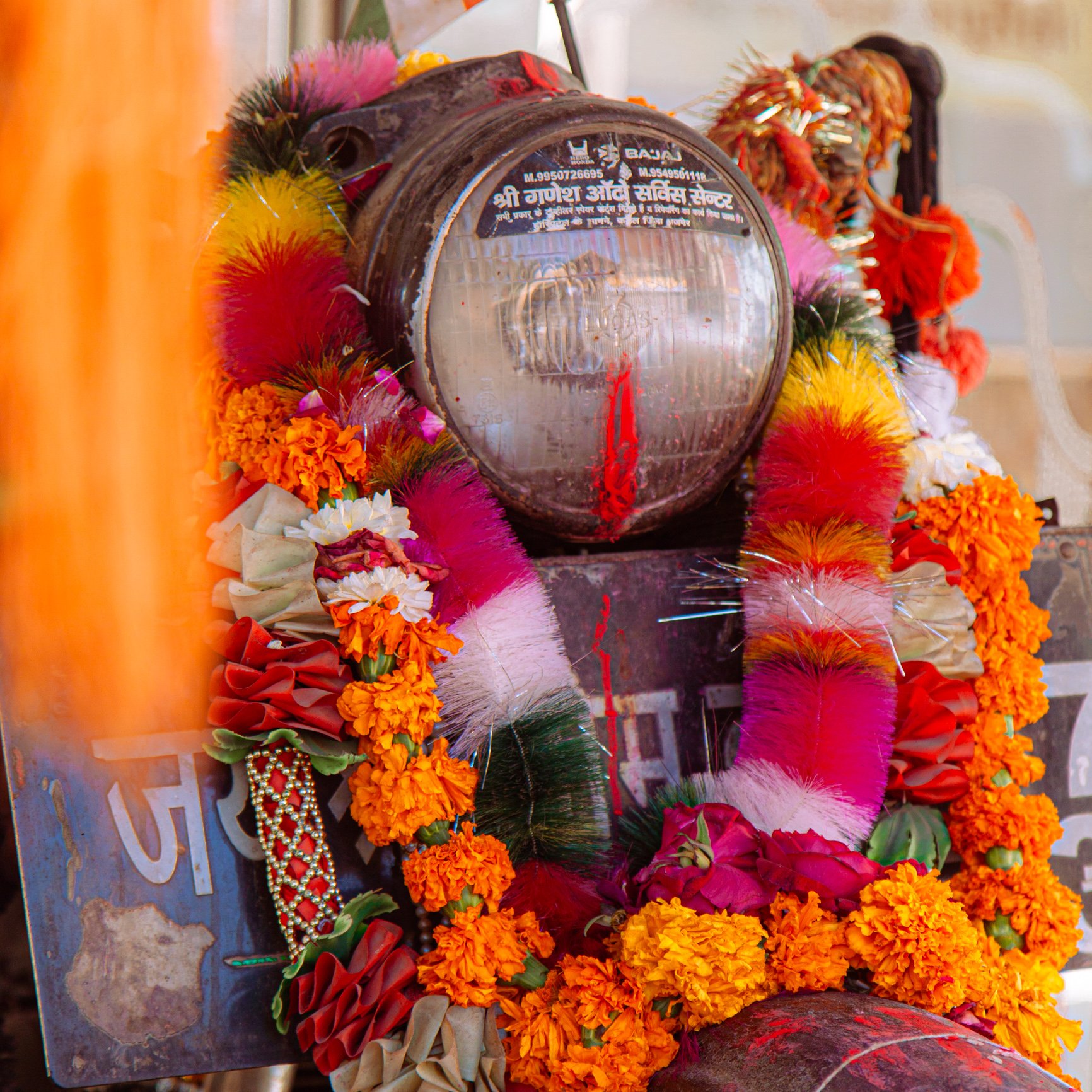Insane/Mundane/Between Frames
By Anokha Venugopal ‘23, Keystone Foundation Fellow 2023-2025
There is the beautiful mundane, like the dogs I say hi to on my way home. There is also the beautiful insane: being able to spend a week in Mudumalai Tiger Reserve for ‘work’; groggily answering the field center door at 6:30 am to Justin Anna (Anna: older brother, a term of respect) armed with a smile and a pair of binoculars, asking me if I’m ready to go birdwatching. We walk down the road, through a small clearing in the bushes beside it, and find ourselves in a vast grass landscape. Frozen, heads tilted all in the same way, staring at us are a group of white spotted deer, many of them with fuzzy antlers burgeoning from their heads, boys to men.
We walk further on, the stream to our right, and there is fresh elephant dung, maybe a few hours old, says Justin Anna. Down the stream, there is a wooly-necked stork, traipsing with its long pencil thin legs through the grass. And then we come upon a bamboo cluster, tall and impenetrable, a deluge of stems, some standing straight, others drooping towards the ground. This seems to be Bird Mecca. Plum headed parakeets, shrikes, scarlet rose finches, sunbirds—they’re all here. I used to shake my head at the concept of birdwatching, but now I get it.
Then there’s morning in Narlai, Rajasthan, where we wake up at 5:30 and follow our hotel guide, Lala Ram, through the streets of the small town, to foothills of elephantine rocks, up the 756 (?) steps carved into their sides, until you are greeted by a white marble elephant, presiding over the entire village. The fog begins to clear, wafting through trees and copper grass until the sun finally appears, a brilliant orange circle so bright that you have no chance of documenting it properly—and so you try to commit the scene to memory.
There is the mundane morning in Hari mama, my uncle’s, apartment in Bangalore, where I arrive after an eight hour bus ride, bleary eyed from intermittent sleep amid the calls of the conductor announcing our stops. A cup of tea is the first way we commence my arrival, after which I fall into a drooling, abyss- like sleep. I feel the most at peace in this apartment and my grandmother’s home in Kerala, perhaps because they are my constants, especially in an era of continuous bus rides and attempting to live as an independent adult in Kotagiri. It is a true privilege that I live in a country where I have family, people that know me, and find it only natural to take care of me.
There is the day that I wait fervently on the rooftop of my uncle’s building to see children and adults throwing their kites to the sky, International Kite Day, anticipating lovely images to capture and hold. My cousin, Anika, myself, and my grandma make our way to the roof after afternoon tea, a speaker projecting Bollywood music as the soundtrack for the kite-filled evening. So many eyes are on the sky. I look over at my grandma, but her eyes are on the horizon. They are somewhere far away, and with her chin on her fist, they well up, silent tears, that she wipes away as no one else noticed. My mother had left that morning back to the United States. Once again, the sun forms a hole in the sky. I need to call my grandma.
In all of these moments there is the constant reminder that there is so much history here. I am surrounded by it. It is everywhere, in the monuments built so as not to forget, and in the monuments they tear down, destroying shared pasts and remaking history. There are also the everyday monuments, documenting life in messy modernity. On the side of the highway, between Udaipur and Jodhpur, is the Om Banna temple, dedicated to the man they call Bullet Baba. Encased in glass sits a 350cc Royal Enfield Bullet, anointed with a red tilak, not a dent or scrape to be seen. Men, some in army fatigues, bow their heads to their pressed palms, then raise bottles of hard liquor up to a bust of Om Banna, offering him intoxication in the afterlife. Om Banna died in 1986 after crashing his Royal Enfield into a tree. The police collected his bike, storing it in the local jail, only to find it gone the next morning. And so they returned to the scene of his death, only to find the Enfield back there again, in perfect condition. Once again, they hauled the motorcycle back to the station, making sure to chain it down and lock it up. But Om Banna wasn’t to be shackled: the bike made its way back. And now, Bullet Baba’s Bullet is a site of unorthodox pilgrimage, where those about to embark on their own journeys seek blessings.
Each moment is part of a collage, documenting territory simultaneously familiar and unknown. I need my camera to help me see these two years through. By now I think she is me, extended, my redemptive tool for the moments in which I cannot verbally convey my thoughts with poise or maturity. Here, I hope that I am growing, learning to move alone, to assert myself, to switch between my flimsy Tamil, Malayalam, and abysmal Hindi; there is so much to learn. For now, my camera is paradoxical—both a safety mechanism helping me navigate unfamiliar spaces, and a mode of communicating and communing with those around me. I am learning how much I don’t know. Each day is a new act of striking a balance between the mundane and insane; finding where the camera ends and I begin.








